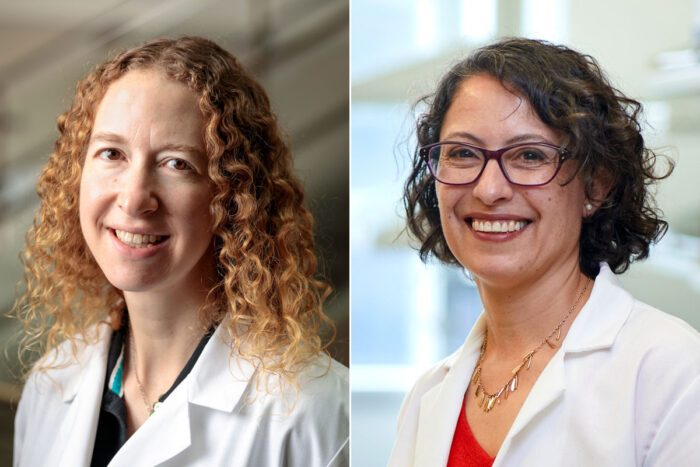López, Stallings elected to American Academy of Microbiology
Recognized for research on respiratory viruses, TB
 Washington University School of Medicine
Washington University School of MedicineCarolina B. López, PhD, and Christina L. Stallings, PhD, professors of molecular microbiology at Washington University School of Medicine in St. Louis, have been elected to the American Academy of Microbiology.
Carolina B. López, PhD, and Christina L. Stallings, PhD, both professors of molecular microbiology at Washington University School of Medicine in St. Louis, have been elected to the American Academy of Microbiology in recognition of their scientific achievements and original contributions that have advanced the field of microbiology. The academy is an honorific leadership group within the American Society of Microbiology. The two are among 65 new fellows from 10 countries elected in 2022.
López, a BJC Investigator, studies how viruses interact with the immune system during infection. As viruses copy their genomes, different forms of the virus are made, creating a community of virus particles. These include virus particles containing standard copies of their genome, as well as particles containing defective (or nonstandard) copies of their genomes. López’s laboratory studies how these different forms of the virus interact with the infected cell and influence its function, as well as how they impact the maintenance and evolution of the virus. López showed that nonstandard virus genomes trigger a powerful immune response and that this response plays a key role in how the body fights key viruses such as respiratory syncytial virus and parainfluenza virus, both of which can cause serious respiratory infections in children.
Stallings studies tuberculosis (TB), the most common bacterial disease in the world, and how the tuberculosis bacteria defend themselves against assault by immune cells and antibiotics to persist in a person’s body, often for decades. She has discovered that the bacteria produce certain proteins to protect themselves and that interfering with these bacterial defenses can help treat disease. With colleagues, she found a compound that prevents and even reverses resistance to isoniazid, the most widely used antibiotic for treating tuberculosis. She holds three patents for TB antibiotics that work by interfering with the bacteria’s ability to withstand stress.






